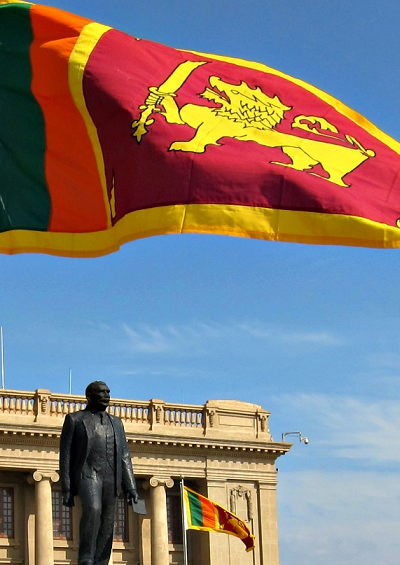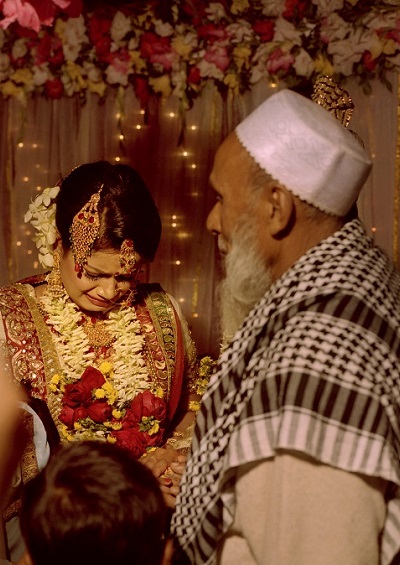
It’s a race against time. Sri Lanka’s newly elected President Maithripala Sirisena has vowed to implement far-reaching reforms in just one hundred days.
The new government wants to move from the presidential system to a parliamentary order, hoping that this may curtail the country’s past authoritarian practices.
Also, the governing alliance wants to change the electoral law and codify the Right to Information in an attempt to increase transparency and to counter rampant corruption and nepotism.
A broad coalition of ideologically diverse political forces supports Sirisena’s reform agenda. Importantly, also Tamil and Muslim groups are in the boat.
The 100-days-plan stands at the center of Sri Lanka’s “Rainbow Revolution,” as the process leading to the electoral defeat of former President Mahinda Rajapaksa and the ensuing regime change has been termed.
That the political mega-event on the small South Asian island has not earned wider recognition around the globe is, in part, also due to the coincidence of Sirisena’s election victory with the monstrous terrorist attack against “Charlie Hebdo” in Paris.
Avoiding the end of democracy in Sri Lanka
“Had Rajapaksa been voted in for a third term, it would have been the end of democracy in Sri Lanka,” says Paikiasothy Saravanamuttu, Executive Director at the liberal think tank Center for Policy Alternatives in Colombo.
“Sara,” as the Executive Director is also called, shares ample examples of the attacks against civil society and independent media in the years of the Rajapaksa presidencies.
Just a few months back, it was inconceivable that the people of Sri Lanka would rebel against the authoritarian ruler and successfully form a democratic alternative that would reach a majority at the polls on January 8, 2015.
The democratically defeated president enjoys a close to legendary reputation among many Sri Lankans, mainly members of the Singhalese majority.
Under his rule, the country’s army dealt a fatal blow to the armed Tamil insurgency lead by the LTTE (Liberation Tigers of Tamil Eelam) in 2009. Long gone are the days of terrorist and suicide attacks which — this is worth recalling -– had their origin not in the Arab world, but with radical Tamil extremism.
The high cost of defeating the Tamil insurgency
To bring the separatists in the East and the North of the island down militarily had a high cost. The Sri Lankan government troops reached that goal with an iron fist and, at times, little regard for proportionality and respect for the life of civilians.
These circumstances of warfare have become a contentious political matter beyond the borders of the island. The United Nations has investigated allegations of gross human rights violations and war crimes during the final stages of the war.
The Rajapaksa government all along rejected international investigations into the circumstances of its biggest military victory as unacceptable interference in internal affairs.
Reacting to Western criticism and pressure which centered on investigations at the United Nations Human Rights Council (UNHRC) in Geneva, the Rajapaksa regime had rearranged Sri Lanka’s foreign policy moving away from the traditional partners in Europe and America and closer to Russia and China.
The rapprochement with China, always on the look-out for new allies on the periphery of its border, has won particular attention in the region — not all of it of a positive nature.
In the field of foreign relations, the new government in Colombo has made a drastic turn. Foreign Secretary Mangala Samaraweera went on a good will tour to Brussels January 28-29, 2015.
He also visited the UK on February 10 and met with U.S. Secretary of State Kerry on February 12.
Rapprochement with the West and with India
Various statements show that Sri Lanka’s confrontational approach towards the West and the one-sided orientation towards China belong to the past. The flirt with the Chinese had become a thorn in the flesh of the powerful neighbor India. Sri Lanka’s relations with India should thus improve.
According to media reports, Rajapaksa crossed the “Rubicon” when two Chinese submarines docked in Sri Lanka without prior notification to the Indians. According to that same report, India’s spy agency reacted by giving support to political efforts aimed at uniting the Sri Lankan opposition, which then defeated Rajapaksa at the polls.
It is of more than symbolic value that the first foreign visit of Sri Lanka’s new foreign minister led to New Delhi. The new president will also travel to India later in the month — before visiting any other country.
“We make a clear commitment towards following a foreign policy of the middle path, in friendship with all nations,” Sirsisena said on the occasion of Sri Lanka’s Republic Day.
Foreign and domestic guiding principles
Moderation and compromise are the guiding principles of the new government not only in foreign relations. Regarding the crucial issue of reconciliation with the Tamil minority after decades of strife and war, radical steps are not expected from the new government.
While President Siresena has highlighted the need for reconciliation of “the people of the North and South” as his top challenge, his government had earlier made clear that it will stick to the position not to allow United Nations investigators into the country.
“The journey towards reconciliation and national unity will not be an easy task and calls for the demonstration of concrete actions,” says Foreign Minister Mangala Samaraweera. He and his colleagues are now in the position to take these actions.
In the best of all scenarios, the democratic removal of hard-line Rajapaksa and the “Rainbow Revolution” are first steps toward peace in the island state. Many more will have to follow.
Takeaways
The political mega-event on the South Asian island of Sri Lanka has not gained wide recognition.
On January 8, the people of Sri Lanka rebelled against an authoritarian ruler and formed a democratic alternative.
A different outcome in the election would have meant the end of democracy in Sri Lanka.
Moderation and compromise are the guiding principles of the new government in foreign and domestic affairs.

